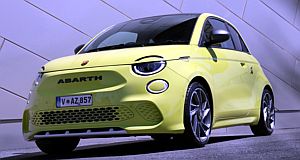A case in California court over whether Tesla deceived customers with its statements about full self-driving technology will go forward, bucking Tesla’s attempts to get the case to be thrown out before trial, a California judge ruled today.
The California Department of Motor Vehicles (DMV) started investigating Tesla for misleading FSD ads in 2021. As it turns out, the company was saying different things to the public than it was saying to the DMV. The DMV then sent an official inquiry to Tesla in 2022, asking for it to respond to the claim that it was creating incorrect perceptions about the capabilities of its system.
That response – which included Tesla’s claim that it has been allowed to lie about FSD for so long that it should get to keep going – apparently wasn’t persuasive enough for the courts, as it turns out the case is going to court now.
Today, an administrative judge ruled that the DMV case will head to a full trial.
Tesla had also argued that the case violates its free speech rights, which famously do not apply to false advertising, as has been recognized time and time again by courts.
This is the second time in a month that Tesla has failed to get an FSD false advertising case thrown out before trial. In May, a judge ruled that Tesla must face a class action over failure to deliver on automation claims.
And Tesla is also facing a probe from the Securities and Exchange Commission over whether it committed securities fraud in its FSD advertising.
At issue is Tesla’s long history of referring to its driver-assist software as “Autopilot” and “Full Self-Driving.” These two pieces of software are related but distinct, with autopilot being an earlier, less-capable, and less-expensive version than FSD. FSD currently costs $8,000, though prices have changed over time and some owners paid up to $15,000 for it.
The argument is that the first feature name, Autopilot, has a colloquial understanding that a driver need not pay attention to the road. However, Tesla has long stated that “autopilot” is meant to refer to the similar piloting software on airplanes, which still require attentive pilots to be at the helm.
Full Self-Driving is a much clearer name, though, which doesn’t just imply but flatly states that the car will be able to drive itself fully. Tesla CEO Elon Musk has repeatedly claimed that Teslas will be able to drive themselves in the near future for over a decade now, but those claims have not materialized.
While FSD has been improving and more capabilities have been added over that time, it still cannot drive itself and requires active driver attention.
Both of Tesla’s systems – and driver assist systems from almost every other automaker – would qualify as “level 2” systems on the SAE’s classification of self-driving systems, despite FSD’s higher capabilities than Autopilot. Currently, only one consumer system on US roads can do Level 3, the Mercedes Drive Pilot on the EQS, and self-driving taxis like Waymo are Level 4.
Tesla has recently started calling its system “Full Self-Driving (Supervised),” emphasizing that a driver still needs to be in the seat and supervising the vehicle, even if they don’t need to actively operate it. This language change happened alongside Tesla giving every US owner a free FSD trial for one month in April, which Musk said would happen as soon as FSD is “super smooth.”
So, perhaps the company wanted to emphasize to newer drivers that they still need to be in the car to use it – or perhaps the language change was in light of the two false advertising cases that are currently working their way through the courts.
While we don’t know the outcome of these FSD cases yet, some owners have had success bringing individual false advertising claims to Tesla over FSD.
An owner in the UK was paid ~$10k over Tesla’s failure to deliver software which he had paid for, and Tesla was ordered to upgrade an owner in the US’ computer for free, after Tesla had charged him for hardware he already paid for. Tesla still continues this practice of charging certain FSD subscribers for hardware which they already paid for.
FTC: We use income earning auto affiliate links. More.



